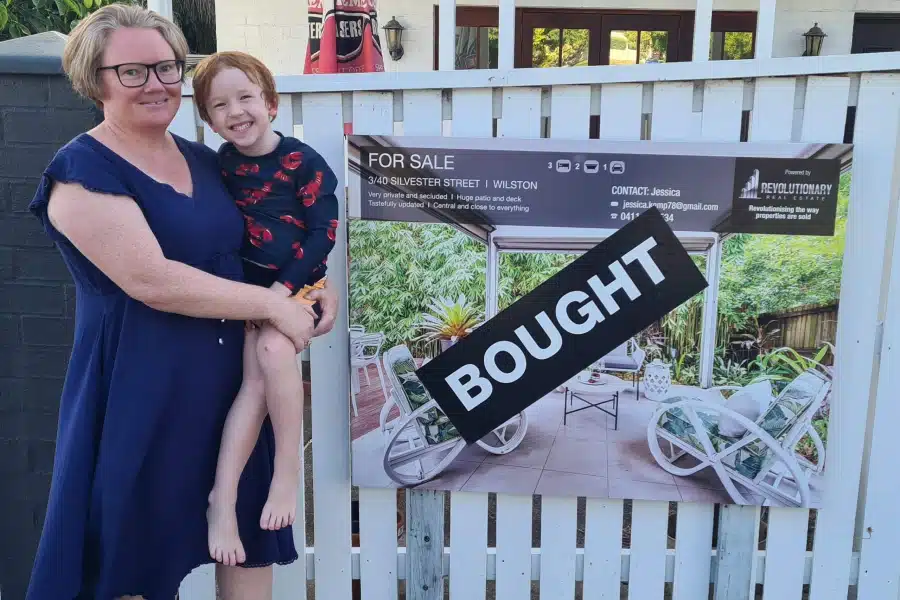
No agent should ever interfere with the sale of your home. Most people engage a real estate agent to help them achieve a better result than they could otherwise and to make the process of selling their home easy and trouble free. Little do they realise that agents are more likely to achieve the exact opposite. There are three reasons why real estate agents are a detrimental obstacle in the sale of your home.
1. No Agent Can Replace Critical Vendor-Buyer Rapport And Reciprocity
When you have a real estate agent representing you, you are a faceless entity to buyers. They don’t see you, they don’t know you and for this reason, they don’t care about you. You may not think or care much about this, but you should, because this will have a costly effect on your sale.
When a vendor and a buyer don’t meet, transactions are more adversarial and win-lose in nature. Buyers will want the most out of the sale for themselves at your expense. They are more likely to make lower offers; impose a greater number of more demanding conditions; make fewer concessions during negotiations, and generally create more hurdles and obstacles, which can make such transactions less successful and fruitful but more painful.
All of this is because real estate agents prevent rapport, empathy and reciprocity to be built between a buyer and a seller. No agent, not even the very best of them can ever compensate for this vital requirement to achieving the highest sale price and a smooth sale. I’m not suggesting that vendors should sell privately by themselves, and I will address this later in this article.
When a buyer meets a seller and realises that they are a decent, blood and flesh human being who is not intent on taking advantage of them, the nature of the transaction changes completely. Thanks to the rapport, empathy and reciprocity, which is created during such encounters, the nature of the transaction changes completely to that of a collaborative, win-win style.
Countless vendors, who have opened their doors to buyers, have told me that those buyers breathe a sigh of relief and are pleasantly surprised by not being confronted by a real estate agent. They let their guard down, become more chatty and reveal far more information to the vendor than they would to any real estate agent. This is all because most people don’t trust and don’t like dealing with real estate agents. The information shared by buyers in these cases can be used to construct great win-win outcomes. No agent can compete with this.
I’ve also seen many cases where buyers not only preferred to buy a home whose previous owners they knew and trusted, but were happy to pay more because they knew more about the home, its history and how it was looked after. When there is rapport, empathy, trust and a connection between a buyer and a seller, it is also less likely that buyers will be unreasonable, uncooperative and adversarial. I’ve also seen buyers be more forgiving towards unfavourable building and pest inspections, instead of using it as an opportunity to try to beat down the price, like many do when buying through an agent.
People have been conditioned by the real estate sales industry to believe that buyers don’t like dealing directly with sellers, but this is simply not true. Yes, there is a very small number of buyers who may feel this way, but this number pales into insignificance when compared to the number of buyers who don’t like dealing with real estate agents.
2. No Agent Can Strike While The Iron Is Hot Or Make It Easy For Buyers To Buy
There are two complementary golden rules in marketing anything, including a home. The first one is to ‘strike while the iron is hot’. In other words, act quickly on any interest from prospective buyers at, or as close as possible, to the time that they show interest. The obvious reason is to help them before they lose interest or become interested in something else.
The second one is to ‘make it easy for buyers to buy’. The less hurdles and obstacles between the buyer and their desired purchase, the greater the chance that they will initiate and complete that purchase. The experience should be as frictionless for the buyer as possible.
Ironically, despite their astronomical fees, real estate agents are almost a guaranteed way to break both of these golden rules. Have you ever tried calling one of the ‘better’ real estate agents in your area? Chances are you won’t get through on the first call and if you’re lucky, they may call you back that day. Now, imagine that the ideal buyer for your home is trying to reach this agent, only to have this experience. This is neither striking while the iron is hot, nor making it easy for the buyer to buy.
When, eventually, this buyer gets a hold of your agent to ask for an inspection, your agent will need to coordinate with you and the buyer in finding a mutually suitable time. How long do you think this will take if the agent can’t reach you immediately, and you need to call them back? The quickest and most efficient way to find a matching gap in two people’s diaries is for those two people to do it directly.
Most real estate agents will simply tell prospective buyers to wait to see the home until the scheduled open home on the weekend. Again, this is neither striking while the iron is hot, nor making it easy for the buyer to buy. If a prospective buyer has a specific question about the home at the inspection, by email or over the phone, who is more likely to know the answer, the agent or the owner?
If the agent doesn’t know the answer to an important question, they need to ask the owner and then relay it to the buyer. The friction and inefficiency of this is another obvious example of how not to make it easy for the buyer to buy. No agent can be as flexible and efficient as a vendor in striking while the iron is hot.
3. No Agent Can Avoid The Conflict Of Interest And Disincentive To Achieve The Highest Sale Price Created By Their Commissions
Few people truly understand why real estate commissions usually lead to lower sale prices, and are a terrible form of remuneration. I wrote earlier about this here and here. There have also been independent scientific studies, which prove that percentage based real estate commissions lead to lower sale prices. You can find two of these studies here and here.
Home sellers have been conditioned to believe that with a percentage-based commission, real estate agents have an incentive to achieve a higher the sale price. The simple logic was that the more an agent sells for, the more money they make. Unfortunately, this logic is flawed.
As earlier studies have shown and as the actual incentive dictates, percentage-based commissions encourage real estate agents to prioritise quicker sales, instead of higher sale prices. If we take the average Australian commission of 2.5%, it only costs an agent $250 for every $10,000 less they convince you to accept in order to secure a quicker sale, so that they can pocket their hefty commission sooner.
Do you think it matters much to a real estate agent whether they take $20,000 or $20,500 in commission, especially if they can have the $20,000 sooner? At 2.5%, the $500 difference between the two commissions translates to a $20,000 difference in the sale price of your home. No agent will care more about the prospect of missing out on $500 as you will about the prospect of missing out on $20,000. As you can see, not only do percentage based real estate agent commissions encourage lower sale prices, but they also create a conflict of interest between a real estate agent and their clients – the vendors. If your wish is to achieve the highest possible sale price, but your agent is not incentivised to do so, then you have a problem. You’re pulling in opposite directions and wanting different outcomes.
4. No Agent Will Ever Have Your Vested Interest
The simple reality is that you cannot outsource vested interest. No agent will have the same vested interest in the result you want to achieve from the sale of your home. It doesn’t matter how much you pay them. As a matter of fact, paying them a percentage is likely to increase the conflict of interest.
There are some things in life that should never be outsourced: A romantic evening with your spouse; raising your children, and selling your home. This doesn’t mean that you should jump in head first and attempt to sell privately. There is a reason why most private sellers fail. Selling a home without any help is an endeavour in which most people are totally inexperienced and for which they are completely unprepared.
Everybody would be well advised to reach out for help, but this doesn’t have to come from a traditional real estate agent. If you would like to find out more, you can start by clicking here.
- Click here to understand the 10 hidden traps and false beliefs about selling your home, which will easily cost you around 10% of the value of your home.
- Click here to read about the 4 signs ignored by most home sellers that scream: “You will lose money on the sale of your home” – even if you think you’re doing well.
- You can read here about the 5 reasons why you’ll NEVER achieve the highest possible sale price with either a real estate agent or by selling privately.
- Click here to understand why you will undersell your home with any of your local real estate agents without ever realising.





